Jamorko Pickett (COL ’21) graduates from Georgetown University today as a fine arts major and Big East champion.
“If you would have said that sentence to people five years ago, we can count on one hand how many people would have believed you, and it wouldn’t have taken up the whole hand,” said Emmanuel Kakulu, Pickett’s head coach at Eastern High School.
Indeed, Pickett’s journey was an improbable one. To rise above the adversity he has endured throughout his life speaks to his character and confidence. To take his opportunity at a prestigious academic program with a rich basketball tradition and pay it forward makes him immortal to the community he is rooted in.
Pickett grew up in Washington D.C.’s Ward 6, to the east of the U.S. Capitol and right along the border of Northeast and Southeast D.C. Thirty years ago, Northeast D.C. was hit hard by the crack epidemic and subsequent war on drugs, which shaped neighborhoods across the city, ravaging poorer areas and still impacting them to this day.
“Neighborhood issues, neighborhood problems, beefs, and things of that nature, there was so much going on,” said Kakulu. “The specific neighborhood that Jamorko comes from is no different. There’s a lot of issues there they have, they have issues with a lot of other neighborhoods. And so the opportunity for Jamorko to have engaged in any behavior or action that would cut his chances short, that opportunity was all around. He didn’t have to go looking for trouble.”
Pickett did his best to steer clear of the myriad neighborhood issues around him, but they still affected his life in tangible ways. He attended Spingarn High School in the 9th grade for only one year. Spingarn was the last segregated high school in D.C., but it was also the home of basketball royalty, including Hall of Famers Elgin Baylor, Dave Bing, and Georgetown legend Michael Graham. The years have not been kind to Spingarn, though, as dwindling enrollment prompted D.C. to close it and 14 other high schools in 2013. A documentary filmed in February 2020 by The Proper People explores the abandoned school today, showing how the building has been slowly decaying, with functional science equipment left to waste and vandalism plastered over the walls. As fate would have it, Kakulu first saw Pickett in Spingarn’s penultimate game.
“The first time I saw Jamorko, we were going to Spingarn to play a basketball game, and he was on that team, but he didn’t play,” said Kakulu. “I just remember seeing another tall kid that they had, and I was wondering, where are they getting all of these tall kids from?”
After Spingarn’s closure, Pickett attended Eastern High School, located right next to the D.C. Armory and Robert F. Kennedy Stadium, former home of the Washington Football Team. The transition was difficult on and off the court.
“I was confronting him with a lot of things that weren’t important to him at the time. It wasn’t favorable, it wasn’t easy, and it definitely wasn’t comfortable,” said Kakulu. “As adults, we have a hard time getting out of our comfort zone. As adults, we have a hard time growing and changing for the better. So imagine how much more difficult it is for a young person who doesn’t quite understand the future and doesn’t quite understand why this is necessary.”
It is important to take stock of Pickett’s journey at this point to understand the magnitude of his phoenix rise going into college. Pickett had made the basketball team at Spingarn in his freshman year but did not play, and his sophomore year at Eastern he did not qualify for the team. Pickett describes himself as a late bloomer when it comes to basketball, but his bloom may be unlike any other.
“I started playing basketball a little later than most other basketball players,” said Pickett. “I started really enjoying playing basketball, and really seeing that I could actually play and go somewhere with it when I was in high school, maybe in the 11th grade, when my high school coach really got on me about focusing up.”
“Jamorko had plenty of talent, but he hadn’t played organized basketball for a long period of time,” said Kakulu. “The things that we did that were not basketball-related, our preseason workout schedule, our conditioning schedule, all of those things I was very hard on him about.”
The biggest change occurred when Pickett sprouted to a height of 6’6” the summer after his sophomore year of high school. His potential took a similarly rapid jump. “He had grown three or four inches, and we said, ‘Hey, you will play at Eastern this year.’ While he grew so fast, all of his perimeter skills stayed with him. So just like you see at Georgetown, Jamorko could handle the ball, Jamorko could shoot the ball,” said Brandon Jackson, one of Pickett’s assistant coaches at Eastern. “He was a dream to coach and from that point on, his development was just so rapid.”
Though his physique underwent a massive upgrade, Pickett’s high level of character remained consistent. He may not have had to face the academic challenges until he got to Eastern, but his upbringing and family set a strong foundation for him to build on.
“I grew up in a very similar environment, Northeast D.C. I went to H.D. Woodson, I was able to get a basketball scholarship. I’ve now been a vice president/CTO for many years, inside of a few tech organizations, so I know it’s doable,” said Jackson. “When I saw his mannerisms, when I saw the amount of respect he gave adults, his ability to listen, his ability to sort of snap straight from being too silly with knowing that he needed to be serious at times, I knew that the opportunity would come.”
By his junior year at Eastern, Pickett’s game started to match his potential. He entered the starting lineup and began to play as the swingman now familiar to Georgetown fans, distinctive as a bigger player with the ability to handle the ball and turn into a knockdown shooter. Off the court, though, distractions remained. The coaching staff at Eastern helped Jamorko stay on course and elevate his game, and their proactive style extended outside basketball.
“Coach K has been like a mentor, like an older brother for me since I first set foot on the Eastern campus. He always looked out for me and had the best interests for me, Coach Jackson also,” said Pickett.
“We were doing as much as we could to keep them away from those temptations that we knew existed in the neighborhoods,” said Jackson. “We were just saying, ‘Hey, it’s probably best that you don’t have idle time on your hands, so let’s spend time in the gym, and let’s spend time together.’ We did a lot of team events, bowling, cookouts, going out to eat, and things like that as well. I will say that every coach at Eastern put the kids’ best interests first, and winning was second.”
“All behaviors are learned behavior, so he was doing the things that he learned in all the situations that he came from,” said Kakulu. “This was the first time that he was challenged at that level and being forced to live up to some of those standards, and I wouldn’t lower the standard for him.”
At this point, the parallels between Pickett’s career at Georgetown and his high school career are plain. Both coaching staffs have a very direct, hands-on style, and they emphasize academics and team chemistry. They were uncompromising when it came to the standards they set on and off the court, which may have endeared Pickett to Georgetown’s coaching staff when he saw the parallels four years earlier.
The next phase of Pickett’s development came in his senior year at Eastern. Gone were the upperclassmen leaders of the past. It was his time to lead and showcase his skills, and he made the most of his opportunity.
“The moment it got to be his turn to lead, which was his senior year, he didn’t look back. He didn’t look back, he definitely leaned in,” said Kakulu. “He wasn’t perfect, he didn’t get everything right away, but everything I challenged him to do, he took it to heart.”
“I was the leader of my high school team, I’ve been the leader of a couple other teams, so you just get a little older, and it’s still pretty much the same thing,” said Pickett. “I like to lead by example, coming in the gym, working hard every day, giving it 100 percent.”
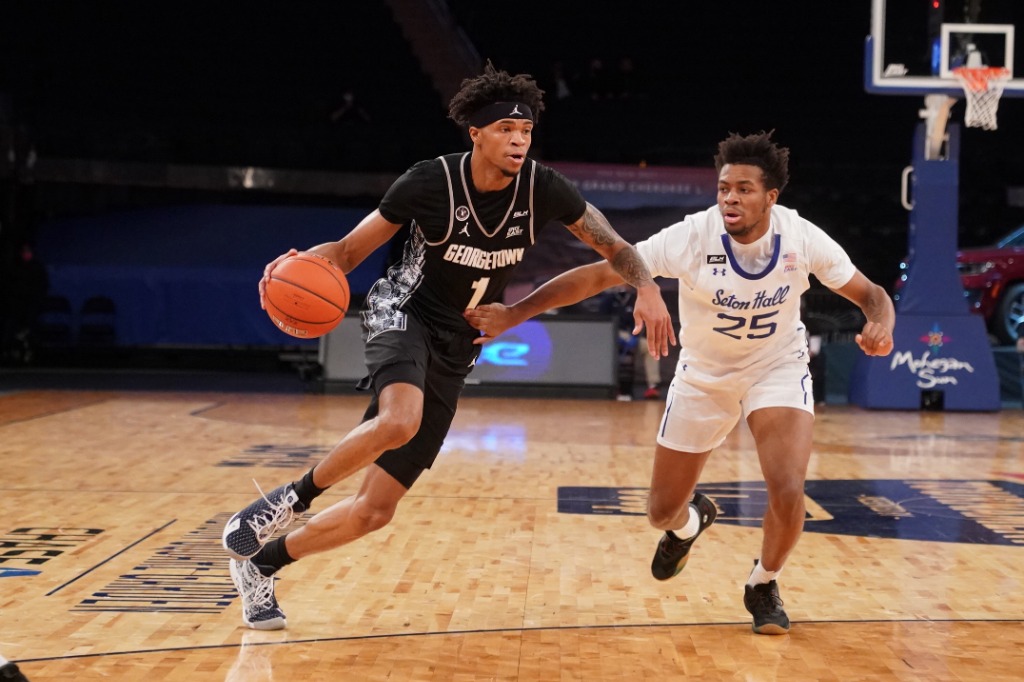
Photo by GUHoyas Pickett grew into a leader by his senior season and never looked back, guiding the Hoyas to a Big East championship.Photo by GUHoyas
Pickett put together a productive senior season at Eastern which garnered some attention from mid-major schools like UMass-Lowell and Norfolk State. However, he was put at another disadvantage simply because he played in a public school. Over the last several decades, the landscape of basketball recruitment in D.C. changed significantly with the rise of the Washington Catholic Athletic Conference (WCAC), a collection of 13 private Catholic schools with renowned and well-funded basketball programs. An area once dominated by public schools under the D.C. Interscholastic Athletic Association like Spingarn, Dunbar, and McKinley Tech is now home to national powerhouses like DeMatha Catholic and Paul VI.
“There’s a lot of talented kids from D.C. Public Schools, me being one of them, Antwan Walker, and a couple others that didn’t really get to go as far as they could have because of them being in D.C. Public Schools,” said Pickett. “If you ask me, I felt like I was one of the top players in my class my senior year, but me being in D.C. Public Schools and not being as looked on as some of these other schools, I wasn’t out there.”
National recruiting is dramatically different than it has been in the past, too. With the rise of Amateur Athletic Union (AAU) teams that travel across the country playing competition, public high schools have been even more marginalized for programs playing in power conferences like the Big East. AAU events like the Nike Peach Jam serve as one-stop shops for college coaches to watch the best players go up against each other, as opposed to the sometimes tedious process of traveling to local high school games.
“It’s difficult for a college coach to to fly to one place to see one high school game and fly somewhere else to see another high school game, when they can just wait for the spring and summer, attend the Peach Jam event, attend an Under Armour Association event and an Adidas 3SSB event, and have the opportunity to watch 100 to 150 of the top high school players in the country in one event,” said Kakulu. “If you play for Team Takeover or Team Durant or New World, I get to watch you play against the top competition in the country, not just in your city.”
Despite playing AAU basketball with D.C. Premier and finishing his high school career strong, Pickett himself said that he had zero offers from college programs. Instead, he caught the attention of Chad Myers, formerly the postgraduate basketball coach at Massanutten Military Academy and currently serving in the same role at IMG Academy.
“Of course when I saw him I saw his potential was super, super high,” said Myers. “I had seen him play in Vegas, that summer he had a really big game where he had 26 points against E1T1. I know that team had Kevin Knox, a kid that was going to Kentucky and obviously plays in the NBA. So I knew, talent-wise, he could do a lot of different things, a positionless guy at the time when basketball was changing.”
Massanutten was an experience for Pickett unlike any other he had previously. It is a military school located in an extremely rural area two hours away from D.C. Though there was an adjustment period, Pickett thrived at Massanutten, and with the added publicity and Myers’ connections, the high-major schools started calling.
“Coach Chad, he gave me the opportunity when a lot of other people wouldn’t. When he was first telling me about Massanutten, at first I was a little skeptical about it. Being in D.C. and going to D.C. Public Schools, and then having to transition to a military school, it was a huge adjustment for me,” said Pickett. “When Coach Chad gave me an opportunity there to do an extra year of high school, we got to play against a lot of great players in a lot of great tournaments, in front of a lot of coaches and stuff like that, so I’m extremely blessed.”
“He was doing a lot of stuff, he was bringing the ball up in transition with his hands, he was obviously on the pick and pop, he was going to plant the ball screen, so we gave him a lot of freedom and he had a really good year for us. He averaged like 21, 22 points a game, and that’s what kind of jumped him up in the rankings,” said Myers. “And then I think he just got stronger, his body went through a change, he was more aggressive attacking the rim.”
“I think once he put that talent together, created a greater exposure to this prep school in the competition he played there, and then you could see that leadership quality in him? Oh man, I just think that the larger schools started drooling at that point,” said Jackson.
The last time we took stock of Pickett’s career, he was a 6’2” guard who hadn’t played organized basketball at the high school level. Three short years later, Pickett was a consensus top-80 player in the class of 2017 and Scout’s service had him rated as high as No. 54. To go from the end of the bench to a four-star recruit in three years and then from no college offers to a high-major in one year is virtually unheard of in this age of recruiting, when even high school freshmen face a high degree of publicity.
As Pickett’s star grew, he remained rooted to the community that he called home. One consistent theme that his high school coaches brought up was his loyalty to those who had invested in him. Kakulu saw the loyalty and investment as part of a virtuous cycle that he was the beneficiary of once upon a time and that he had to pass on.
“Jamorko is one of the most loyal people I’ve ever met in my life,” said Kakulu. “He could have gone to play for other people. He could have decided to leave Eastern. Even while he stayed at Eastern or beyond Eastern, he could have decided ‘Okay, I’m going to work out with other coaches every year’. Jamorko came back to work out with me every year. Jamorko kept me abreast. I don’t take any of those things lightly, because I know that I’m not the only person in his life. He’s had the opportunity to learn from tens, dare I say hundreds of people by now up to this point, and he still looks at me as somebody who holds that space in his life.”
“Me and Coach K are a lot closer, and I’m extremely thankful and happy that he helped me get to where I am, because if it wasn’t for him being at Eastern, there’s no telling where I’d be at or what I’d be doing right now, because it definitely wouldn’t be basketball,” said Pickett.
“I am the beneficiary of somebody seeing me, not wanting anything from me, but just knowing that this kid needs a bit more, he just needs my time. He needs somebody to be there,” said Kakulu in response to Pickett. “When I got the opportunity from Ms. Rachel Skerritt to come work for her at Eastern, and be a light to those young men, I had to jump at the opportunity, because all I could think about was my turn, and how different things might have been for me if I didn’t have somebody standing in that gap for me.”
It was no surprise that when the opportunity came for Pickett to choose where he would attend college, he wanted to stay at home and show out for the family and friends who had given him so much.
“He actually visited Georgetown and Maryland, and even Kansas was trying to get him to visit, but he only wanted to visit those two schools because of the proximity of home,” said Myers. “So I think he thought it was a great idea for people, obviously his family and his high school coach Manny [Kakulu] all being around there to support him and see him play.”
The manner of Pickett’s recruitment to Georgetown was fortuitous, though. “Coach Pat [Ewing] was the first person on staff that actually called me. I don’t know how the call got through because I was in North Carolina at the time, my phone gets no service down there, so I was lucky as God that the call got through,” said Pickett. “He said it was him, and I thought it was somebody playing around with the phone, but of course at the time I was starstruck. Extremely blessed to have the opportunity to play here for four years and be coached by him.”
It would be inaccurate to pretend like Pickett did not face adversity at Georgetown. In his first three years, the Hoyas did not make the NCAA Tournament, prolonging a five-year drought. Eleven players have either transferred out or been dismissed from the men’s basketball team in Pickett’s time on the Hilltop. Throughout it all, Pickett remained supremely confident that his turn would come, and fiercely loyal to the second family he had been a part of in his city.
“We never got to a point where we had a conversation about him leaving Georgetown,” said Jackson. “Even when I thought, ‘He’s not playing up to his potential, I wonder, could he do better somewhere else,’ Jamorko was extremely positive about his role there at Georgetown and his relationship with Coach Ewing.”
“Not once has there been an offseason where I’ve spoken to Jamorko and he’s been nervous about what they might be able to do coming into the next year. Not once,” said Kakulu. “Year after year with players leaving, not once did he ever come to me and say, ‘Man, I don’t know, man, we’re not looking too good.’”
His turn came in his senior year at Georgetown, again mirroring his high school career. On a team with nine new faces that was picked to finish last in the Big East by the coaches around the conference, Pickett took charge, becoming more aggressive and using his length to disrupt opposing offenses. His vocal leadership and rebounding saw an uptick, with him and the other veteran leaders helping the Hoyas win their eighth Big East Tournament championship—a feat that few outside the locker room had seen coming. For his high school coaches, it was jubilation and validation delivered on basketball’s finest stage.
“To have him win a Big East championship and him be a part of that is what he went back for and what he wanted to do, so to see that come true is just special because you know that’s what he wanted,” said Myers.
“You’re talking about staying focused and not giving up man, the way that team played in the tournament to come back from that very low seed and do what they did was absolutely remarkable,” said Jackson. “We just simply loved the fact that Georgetown had gotten back in the mix, and that we had winning basketball, exciting basketball taking place here in DC.”
“It’s letting every single young person know, boy or girl, you can do it too. This is something you can have. And so if you ever, even for a second, had a dream, or wanted to, ‘Oh man, I want to be a champion, I want to play college basketball, I want to go and graduate from a school like Georgetown, or Maryland or any of these great schools that are in our area,’ it’s telling these young people, you can do it, and you can do it right from where you are,” said Kakulu. “One dream becoming a reality makes a thousand become possible, so it’s worth everything.”
Not only does Pickett represent a beacon for aspiring public school hoopers in the D.C. area, he makes it a point to pay it forward to the community he loves so dearly. He comes back to work out with public high school players and help improve their game, as well as discussing all the off-court subjects that Kakulu, Jackson, Myers, Ewing, and so many others have emphasized with him.
“He comes back and works out and is willing to share his knowledge with guys who may never have that opportunity. I’ve watched him come back and work with guys who might not even have the chance of playing college basketball, but still try to share his knowledge with them so that they can go a little bit further,” said Kakulu. “He’s not the type of person that is just going to […] take advantage of what everybody has tried to do for him and not want to pay any of that forward. And so you go to his neighborhood, he comes outside, everybody loves him.”
With Pickett graduating today, we should take stock of his journey one last time. He overcame every imaginable neighborhood adversity and stepped well out of his comfort zone when he was challenged with academic and athletic standards. He essentially started playing organized basketball in the 11th grade and only needed three years to break out onto the national scene. He came from D.C. Public Schools and succeeded at Georgetown, one of the nation’s most prestigious universities. He showed kids from his city that dreams are possible and he came back time and time again to try and help them achieve those dreams.
Five years ago, this story was inconceivable except to a select few. Today, it is a reality.
“To be able to represent a lot of other kids coming up after me, it’s huge to me. I’m big on pride. I know a lot of kids look up to me and what I’m doing right now,” said Pickett. “I love D.C. I am D.C.”


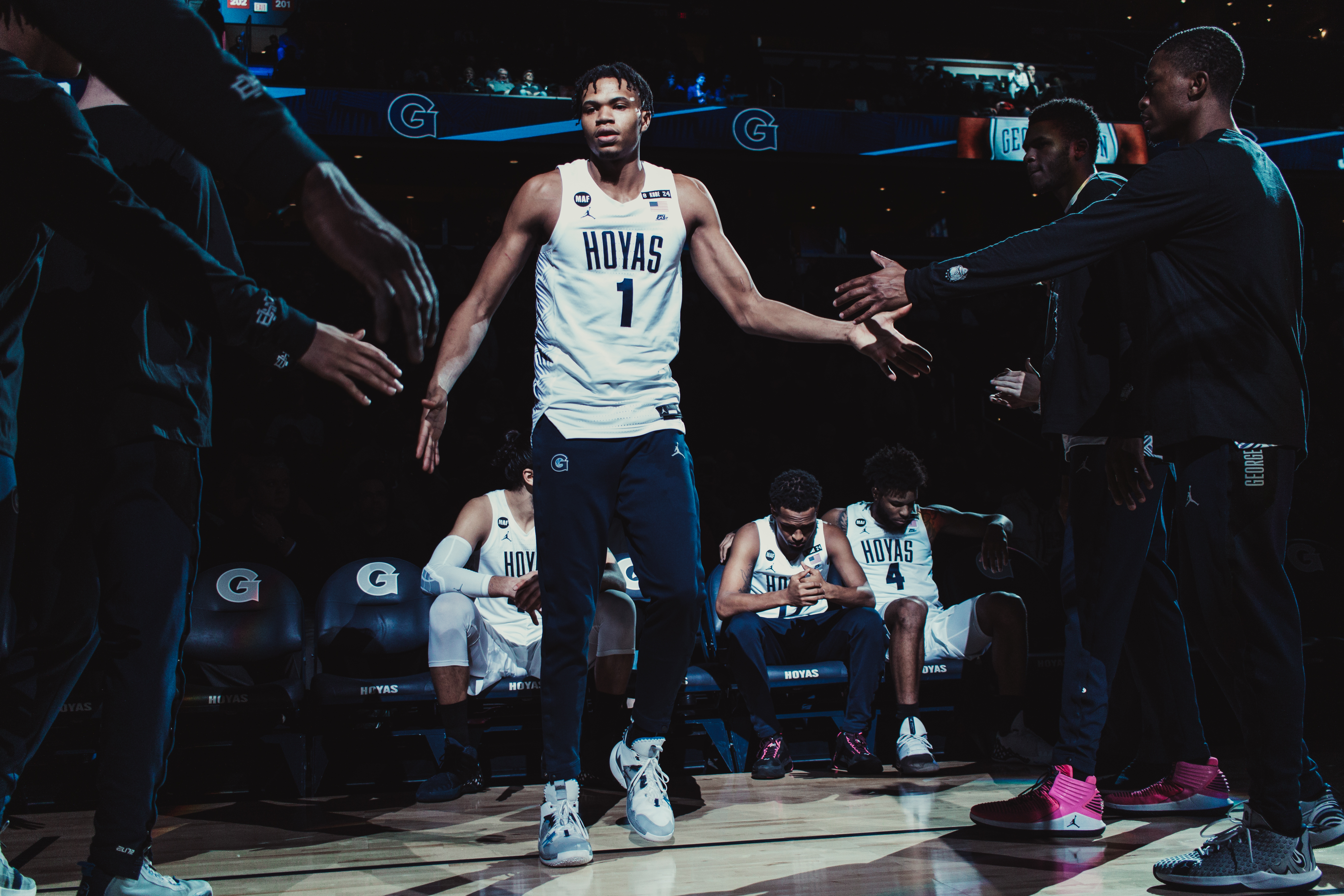
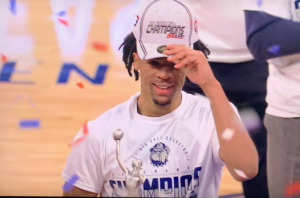
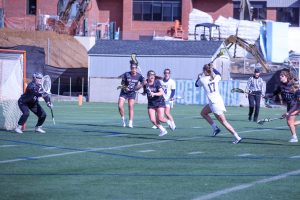
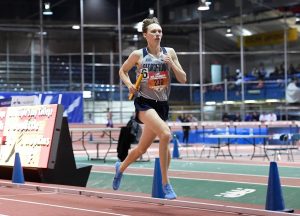
I very delighted to find this internet site on bing, just what I was searching for as well saved to fav